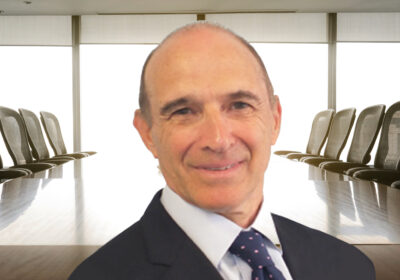
- Author: Jon Brett
- Posted: September 14, 2023
How can CFOs truly add value to a Board?
Presenting the financial information in a clear and logically precise way
The Board doesn’t have all day to review financial information, thus the CFO has to ensure there is the right volume of information that is easy to consume. There are different degrees of financial literacy of board members and the CFO needs to cater for every Board member, especially the least numerate.
A great deal of time is spent discussing financial information and with the diversity and inclusiveness of Boards today, the CFO needs to ensure all the Board members fully understand the finances. The Board is the CFO’s customer, and the CFO needs to make Board members’ lives easier by using best practices to ensure that information can be understood rapidly and accurately and is relevant to the people receiving the information.
Best practices can be found on LinkedIn at International Business Communication Standards
Explanation of changes
Directors need to pick up a report and without knowing anything, they need to be able to quickly ascertain what are the most important issues that have arisen during the period – or from previous periods, and how they are being dealt with. There needs to be an explanation of changes between periods and divergence from budgets.
Some of these issues may have other consequences like Cash Flow Management to ensure the Company has sufficient liquidity to meet its obligations.
Dealing with big personalities
In the Boards I am involved with, we like to invite senior executives to give presentations, to enable Board Members to get a true understanding of the business and the depth of management in the business. The CEO and some executives may be in sales mode and it is the CFO’s role to balance this ‘sales mode’ with a degree of reality. A good CFO is one you can ask “are you okay with the information being provided?”. Boards need to be able to look the CFO in the eye and take comfort that what they are being sold, is real!
There are always looking forward statements made to a Board, but to add real value, the CFO must know how to balance the commercial realities with these statements. Divisional heads can promise anything in their budgets, but the CFO does need to establish if this is commercial reality.
Establishing Networks across the business
The Ex CFO at Corporate travel, Cale Bennett, described himself as an Octopus. Cale established networks across the business, so he could understand what was happening in various divisions. That made it easy for Cale to be helpful to the Board to get or validate explanations.
Boards needs to have confidence that the CFO is not sitting in a dark room just pumping out the numbers. A CFO cannot get a grasp on the numbers or the actual business by operating from a bunker.
Help evaluate investment opportunities and divestments to maximise shareholders’ value and monitor synergies.
It never ceases to amaze me that sometimes very little thought is given as to what a potential investment will add to a Company and how our Company can add value to that investment. Being EPS accretive, whilst necessary, is not really a good answer. There are lots of companies one can buy at really low earnings multiples, but there is no point in building a stable of disparate companies for growth’s sake, especially in the listed environment.
At Corporate Travel, every acquisition has to fit squarely within our long-term goals – giving our clients the best travel experience, by delivering customer service excellence and innovative technology. The acquisitions have to expand markets we are in, in countries we operate in, or our clients operate in, or provide technology we can use to enhance the client experience.
It is the CFO’s responsibility to keep track of all the expected financial and other synergies, calculate the effect of those implemented and those proposed that still need to be implemented. In this way a Board can be confident that management is successfully identifying and implementing synergies which in turn gives the Board comfort to know that management is able to properly identify synergies and actually achieve them. This also gives the market confidence in management, and leads to an increased ability to fund acquisitions through capital raisings.
After Vocus merged with M2, every assumption at the time of the merger should have been examined to determine what was achieved, what was in the process of being achieved, what could be achieved and what were the lessons learnt. None of this was ever presented to the board.
Capital Allocation
Capital is a scarce resource. Capital allocation is not merely allocating capital for investments but also fixed assets and ensuring a correct return on any capital expenditure or investments. In my previous life, one of the businesses I was responsible for owned one of the largest bolt manufacturing plants in the world. They had a furnace which ran 24/7 and had a conveyor belt inside this furnace. They never kept a spare belt, as it was too expensive and we didn’t want to tie that much capital up, but there were a lot of spares kept for repairs. When the belt broke, repairs took at least two weeks. No-one had calculated the cost of the lost sales and other costs that very soon added up. I was the group CFO at that stage and asked the divisional accountant to add up all the new expenses arising from the breakdown. Everyone was gobsmacked at the total, and pretty soon we always kept a full belt as a spare, which reduced the downtime considerably.
Technology and Automation
CFOs are normally well place to help identify opportunities for automation to ensure efficiency. They may be best positioned to present these opportunities and financial justification to the Board.
Cost management
Expenses have to be watched like a hawk. To quote the song from Evita,
‘When the money keeps rolling in, you don’t ask how. Think of all the people guaranteed a good time now’
Well, that may be fine for some, it is very easy for expenses to get out of hand. Everyone wants a subscription to the AFR, lunches, extra staff, personal assistants, and the list goes on. But if the money stops rolling in? Many companies have run into difficulties over the extravagance of executives. The CFO is the person who must ensure this is not happening, even if those executives are more senior. The CFO has ultimate responsibility for everything that goes into financial statements.
About the author –
Jon Brett | Non-Executive Director & Chair of the Audit & Risk Committee | Corporate Travel Management (CTM)
Jon is the author of the very successful podcast series “The Taking of Vocus” which chronicles the extraordinary rise of Vocus, what went wrong with the M2 merger and concludes with the privatisation of Vocus.
The podcast and a copy of the upcoming interactive book can be found via Jon’s LinkedIn – https://www.linkedin.com/in/jon-brett-95734732/




